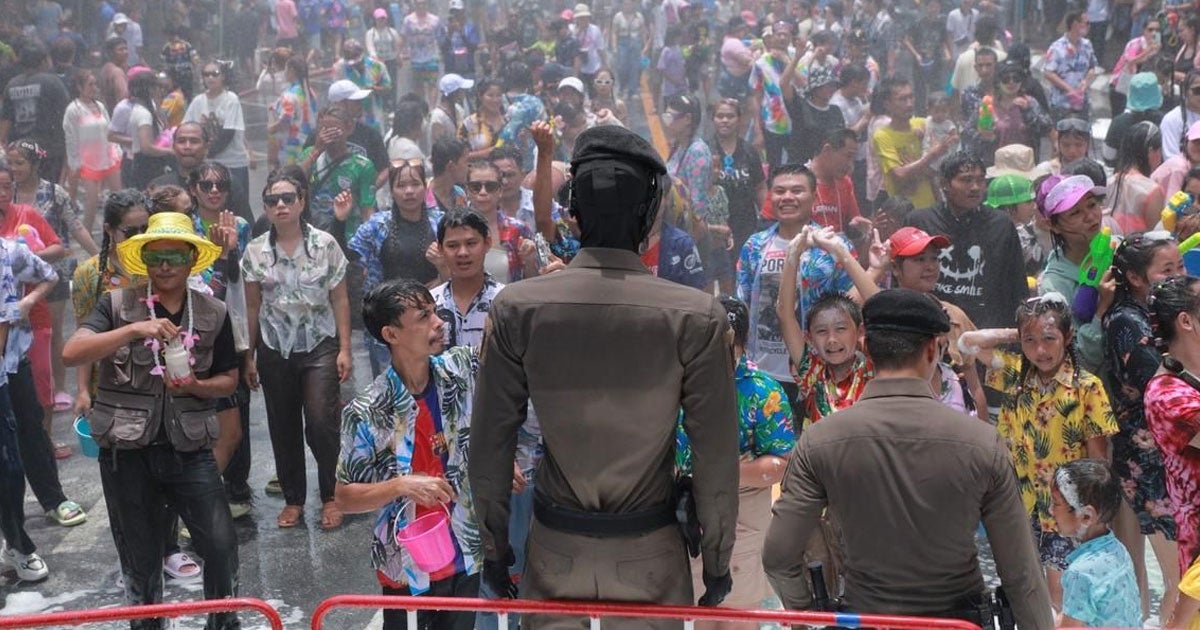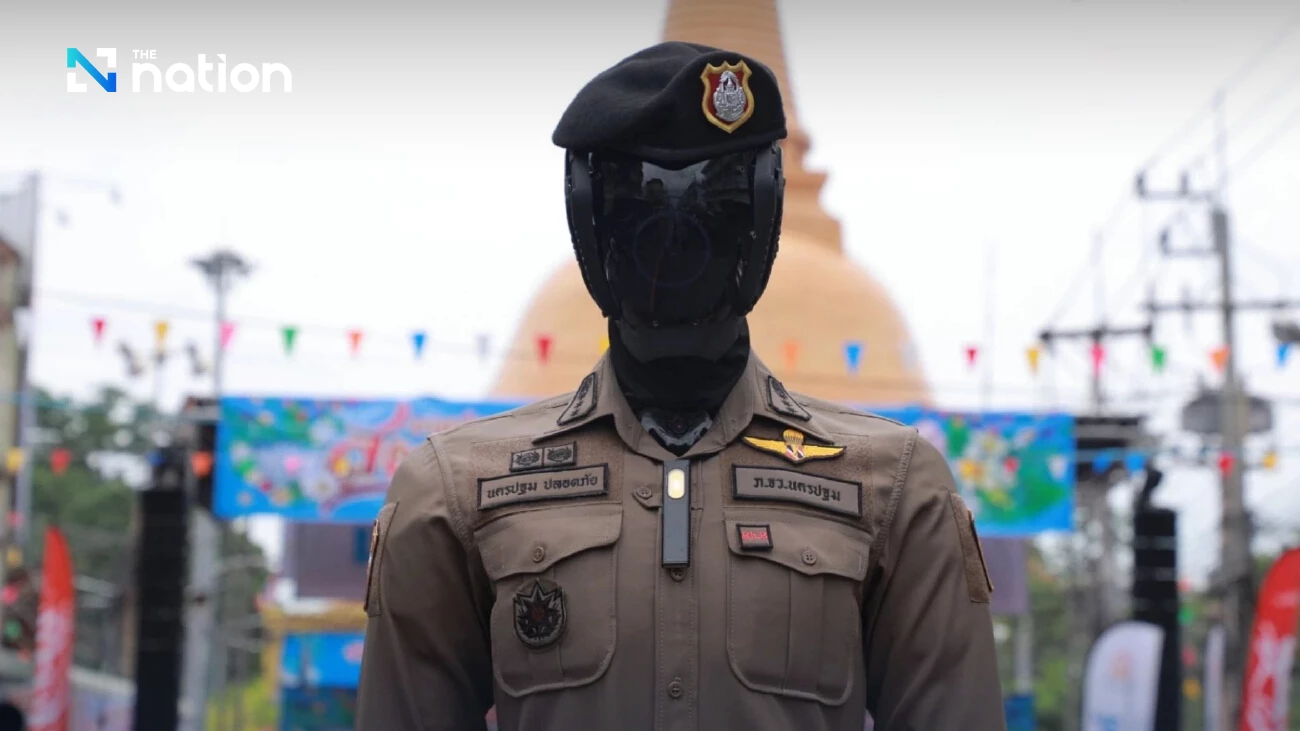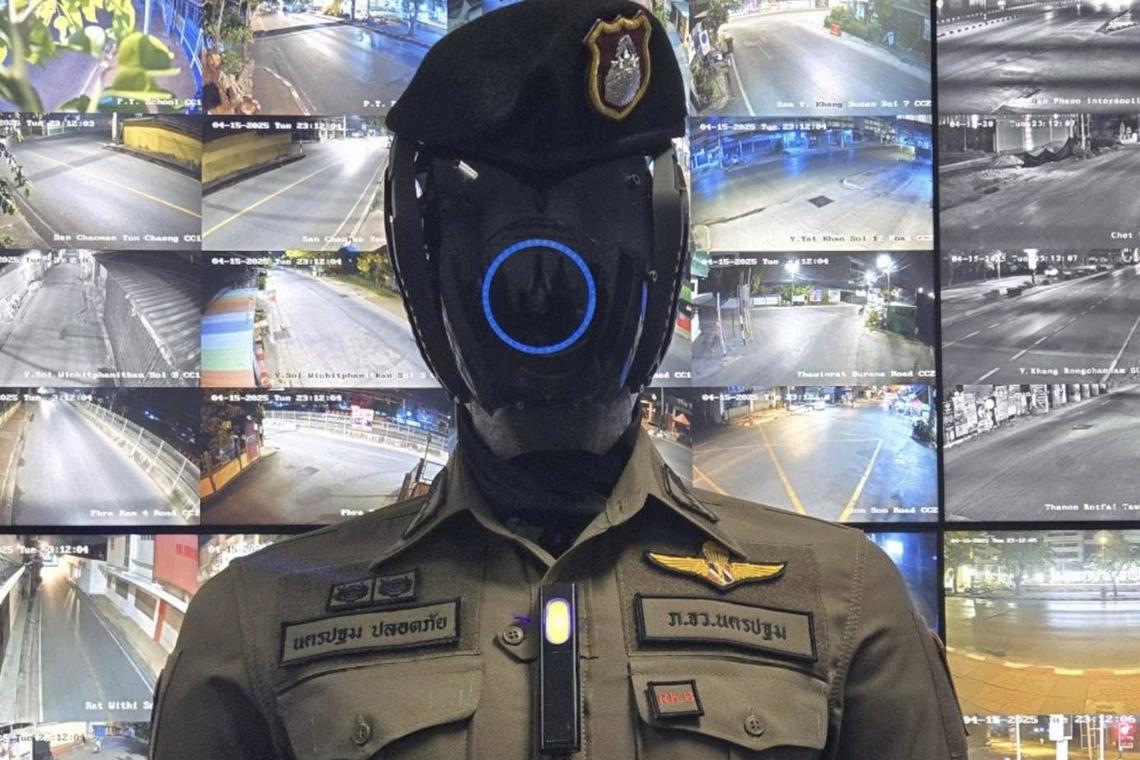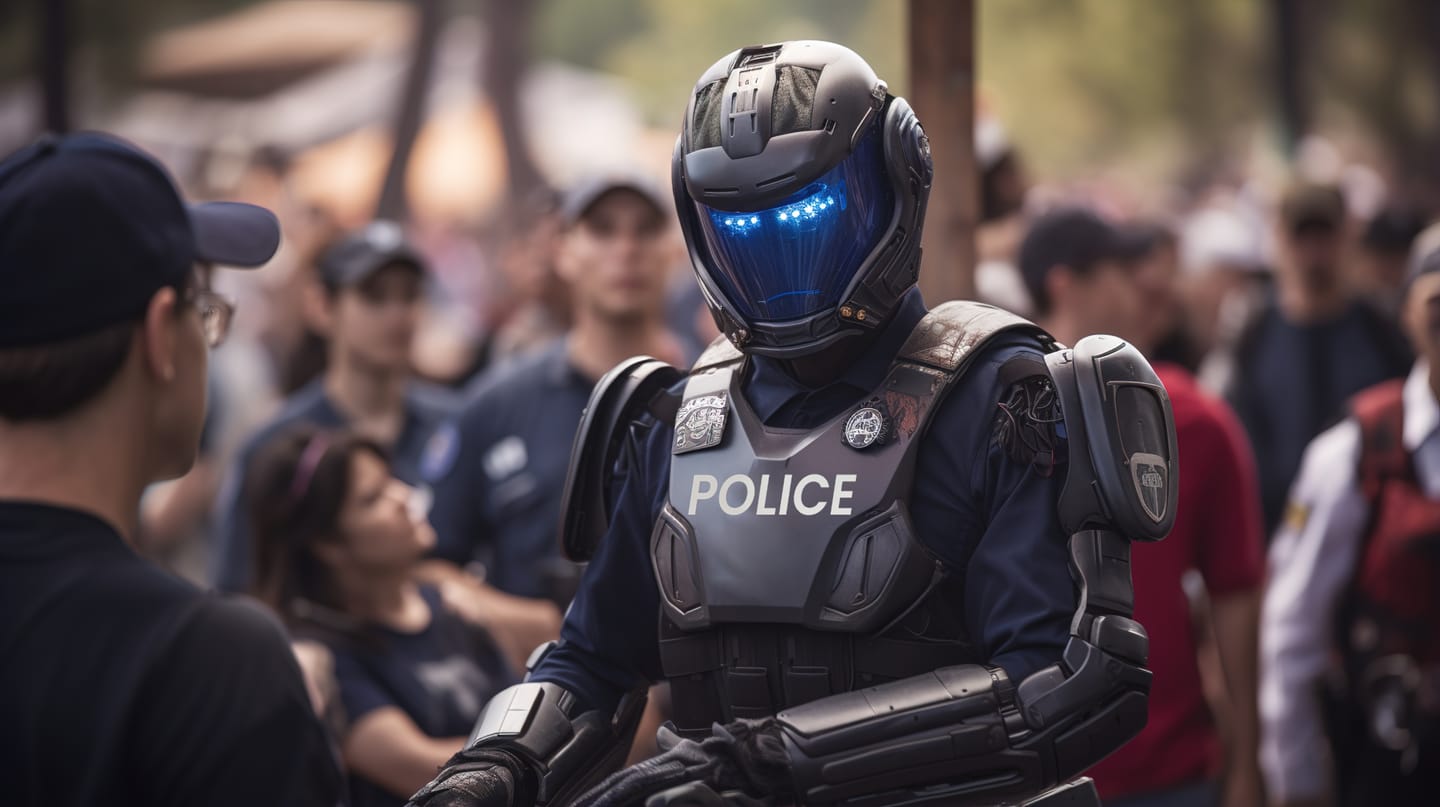The Royal Thai Police (RTP) officially announced the deployment of "AI Police Cyborg 1.0" on April 16, 2025, as part of security measures during the Songkran festival in Nakhon Pathom province. The Robocop-style humanoid robot features 360-degree AI cameras and serves at the festival venue on Tonson Road in Muang district. Jointly developed by Provincial Police Region 7, Nakhon Pathom Provincial Police, and Nakhon Pathom Municipality, the robot integrates live footage from CCTV cameras in and around the event area as well as drone surveillance, processing them using AI technology built into the cyborg's system.
The AI police cyborg utilizes facial recognition technology capable of identifying and notifying officers if wanted or high-risk individuals are detected, while searching for and identifying individuals based on their facial features, clothing, body type, and gender. The robot can track suspects across the event area, detect potentially violent or disruptive behaviours such as fighting or physical assault, and identify potential weapons, including knives and wooden sticks, while excluding water guns from detection. The system links directly to the province's Command and Control Centre to efficiently manage public safety during public events, however, privacy implications and previous accusations of corruption and bribery against Thai law enforcement raise questions about the deployment of this technology.
Police forces in other countries have also attempted to deploy robots in law enforcement, typically with limited success. In the United States, robots developed by security company Knightscope were deployed, which in New York were taken out of commission almost immediately after proving unable to curb crime. The deployment of humanoid police robots continues to face numerous technical obstacles, as these robots are only just learning to stand comfortably on their own two feet, likely requiring substantial human supervision for their deployment.
Sources:
1.

2.

3.











